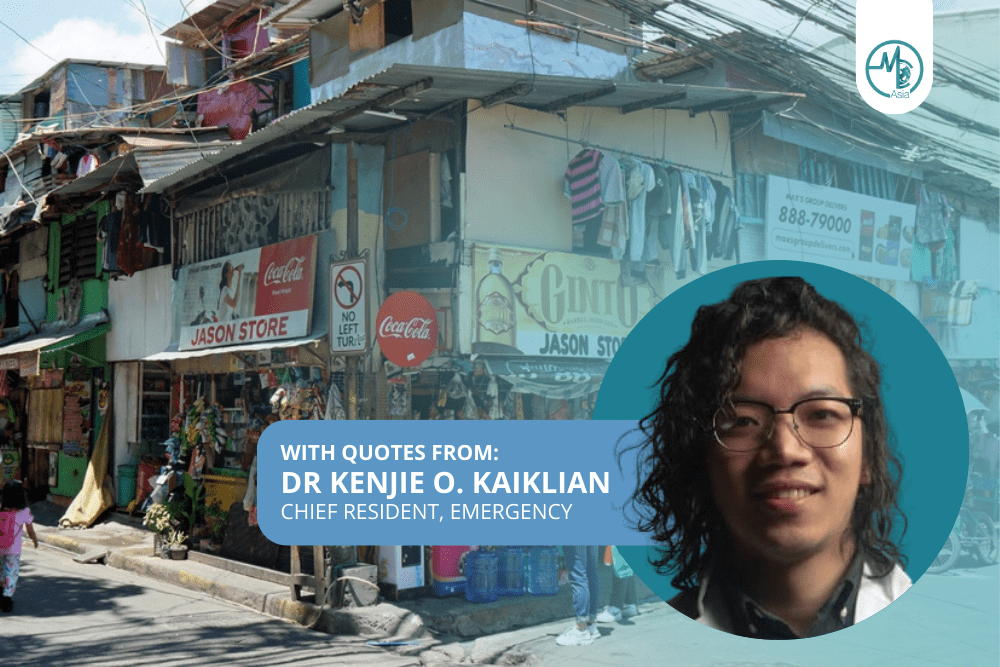Senator Cristopher “Bong” Go advocates for the establishment of super health centers (SHC) aimed at enhancing the availability of public health services in rural areas.
During the groundbreaking of the Super Health Center located at Barangay Malaguicay, Tanauan, Leyte, on September 28, Senator Bong Go voiced out his vision for proper medical services to rural areas in the Philippines. He said that the SHC will aid individuals residing in remote areas by providing them with improved access to healthcare services.
Current State of Health Care Centers in the Provinces
The Philippines is composed of 2,000 inhabitable islands, and only a few have an established hospital. The remaining islands only have healthcare centers which are just limited to essential medical services. These limitations impose a great challenge for both the residents and doctors of these islands.
In these facilities, services such as basic check-ups, minor operations, immunisation programs, prenatal and postnatal care, and laboratory services are the only things that could be offered to the people in the provinces. This hinders physicians from performing the right treatment for other patients.
In addition, the distance between these rural areas to a hospital is significant and requires the people to have proper transportation, which, unfortunately, is unavailable to them. This costs them time and money that they do not acquire.
What are Super Health Centers
Super Health Center is a medium-sized poly-clinic that offers essential healthcare services. They focus on less severe, straightforward, and outpatient medical needs. The difference between SHCs in a rural health center and a hospital, in terms of size, is that it falls between them. SHC will be established in strategic areas, meaning a location that is much more accessible to the majority.
Super Health Centers Services
These centers offer a range of services, including database administration, outpatient treatment, maternity services, isolation units, diagnostic services encompassing laboratories, X-rays, and ultrasounds, as well as pharmacies and ambulatory surgery units. In addition, other services are available, such as eye, ear, nose, and throat service; oncology centers; physical therapy and rehabilitation; and telemedicine.
Doctor’s Insights
Dr. Kenjie O. Kaiklian, a chief resident in the Department of Emergency at Philippine General Hospital, shared his thoughts about the establishment of SHCs. He said, “The project of the Department of Health (DOH) to establish 322 Super Health Centers in rural areas of the Philippines is a commendable effort. These centers can potentially serve as hubs for comprehensive healthcare delivery.”
He also emphasised the important factors for SHCs to effectively help people. He noted, “However, it is important to ensure that these centers are adequately staffed, equipped, and well-connected with surrounding communities. Ongoing training and support for the healthcare professionals working in these centers will be crucial for their success.”
He also imparted his suggestions to address the increasing need for accessible medical care in rural areas by listing the following:
Telemedicine and Telehealth Initiatives
Expanding telemedicine services can bridge the gap in healthcare access. This would allow patients in remote areas to consult with healthcare providers virtually, reducing the need for physical travel.
Mobile Health Clinics
Implementing mobile health clinics can bring essential medical services directly to rural communities. These clinics can offer basic healthcare, vaccinations, and preventive services.
Training and Deployment of Community Health Workers
Empowering local individuals as community health workers can greatly enhance healthcare accessibility. These workers can provide basic healthcare, health education, and act as a link between the community and formal healthcare facilities.
Infrastructure Development
Building and upgrading healthcare facilities in rural areas is essential. This includes clinics, hospitals, and diagnostic centres. Ensuring these facilities have basic equipment and medication stocks is crucial.
Health Education and Awareness Programs
Educating the community about preventive healthcare measures, early signs of common diseases, and the importance of seeking timely medical attention can significantly improve health outcomes.
Collaboration with Non-Governmental Organisations (NGOs) and Private Sector
Partnerships with NGOs and the private sector can help mobilise resources, expertise, and funding for healthcare initiatives in rural areas.
The Important Truth
Dr. Kenjie also shares how important SHCs are to his fellow Filipinos. He stated, “Having accessible health services is of paramount importance for the well-being and prosperity of any community. It not only saves lives but also promotes economic development and social stability. When people have access to healthcare, they can lead healthier, more productive lives. It prevents diseases from progressing to advanced stages, which can be both costly and devastating for individuals and families.

